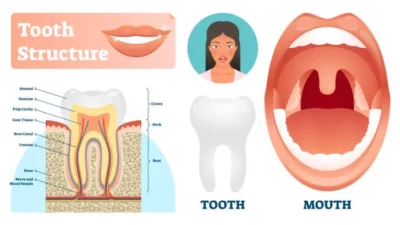Supporting a loved one through substance use disorder (SUD) treatment can be challenging, emotional, and sometimes confusing. If someone you care about is battling addiction, your support can make a tremendous difference in their recovery journey. In New Jersey, where many resources and treatment centers are available, understanding how to best help your loved one is key to fostering lasting healing and hope.
This blog will guide you through practical ways to support your loved one through treatment, explain what to expect from the recovery process, and highlight helpful resources in New Jersey that can assist both you and your family.
Understanding Substance Use Disorder and Treatment
Substance use disorder is a chronic condition characterized by the compulsive use of drugs or alcohol despite harmful consequences. It affects the brain’s reward system and behavior, making quitting without help very difficult. Treatment often involves a combination of medical care, therapy, and ongoing support.
In New Jersey, treatment programs range from inpatient rehab centers and outpatient counseling to support groups and medication-assisted treatment (MAT). The right approach depends on your loved one’s specific needs, the severity of their addiction, and any co-occurring mental health issues.
Why Your Support Matters
Addiction recovery is not just about the individual—it’s a family and community effort. Your encouragement and understanding can:
- Help your loved one feel valued and motivated
- Reduce feelings of shame or isolation
- Improve treatment adherence and reduce relapse risk
- Create a supportive environment for healing
Being a steady source of hope and patience is one of the most powerful gifts you can offer.
Practical Ways to Support Your Loved One Through Treatment
1. Educate Yourself About Addiction and Recovery
Understanding addiction as a medical condition helps remove stigma and judgment. Learn about how substance use disorders affect the brain, the typical stages of recovery, and what treatment involves. New Jersey’s Department of Human Services and local nonprofits often offer educational resources and workshops that you can attend.
2. Encourage Professional Treatment
Encourage your loved one to seek professional help. Offer to assist with researching treatment centers in New Jersey or accompany them to appointments. Remember, the decision to enter treatment must come from them, but your support in finding the right program matters.
3. Be Patient and Listen
Recovery is a process with ups and downs. Your loved one may feel frustrated or discouraged at times. Practice active listening without interrupting or offering immediate advice. Let them know you’re there to support, not to judge.
4. Attend Family Therapy or Support Groups
Many New Jersey treatment centers include family counseling as part of their programs. Participating in these sessions can improve communication and help you understand how best to support your loved one. Additionally, groups like Nar-Anon or Al-Anon provide family members with emotional support and coping strategies.
5. Help Create a Healthy Environment
Encourage routines that support sobriety—regular meals, exercise, and restful sleep. Avoid enabling behaviors such as giving money that might be used to buy substances. Instead, help your loved one engage in positive activities that promote wellness.
6. Respect Boundaries
Sometimes, loved ones need space to focus on their recovery. Respect their privacy and boundaries while maintaining open communication. Support means being available but not controlling.
7. Celebrate Milestones
Recovery can be a long journey with many small victories. Celebrate sobriety milestones, therapy successes, or even the courage to seek help. Positive reinforcement encourages continued progress.
What to Expect from Substance Use Disorder Treatment in New Jersey
Understanding what happens during treatment can prepare you for the road ahead:
- Assessment and Intake: Your loved one will undergo a thorough evaluation to develop a personalized treatment plan. This may include medical exams, psychological assessments, and discussions about goals.
- Detoxification (if needed): For those physically dependent on substances, medical detox helps safely manage withdrawal symptoms under professional supervision.
- Therapy: Individual and group therapy address the root causes of addiction, teach coping skills, and promote emotional healing.
- Medication-Assisted Treatment (MAT): Some patients benefit from medications that reduce cravings and withdrawal symptoms.
- Aftercare Planning: Continued support through outpatient programs, counseling, or 12-step groups helps maintain sobriety post-treatment.
Many New Jersey facilities combine these elements into a comprehensive program tailored to the individual’s needs.
Taking Care of Yourself While Supporting Your Loved One
Supporting someone through addiction recovery is emotionally demanding. It’s important to care for your own well-being:
- Seek support through counseling or family support groups.
- Practice stress-relief techniques like meditation, exercise, or hobbies.
- Set healthy boundaries to avoid burnout.
- Remember your role is to support, not to fix or rescue.
Taking care of yourself enables you to be a stronger pillar of support.
The Power of Hope and Compassion
Recovery from substance use disorder is possible, but it often requires time, patience, and the right support network. Your role as a family member or friend is invaluable—offering hope when your loved one feels hopeless, and standing by them through every step.
New Jersey’s network of treatment centers, counselors, and support groups provides the resources needed for successful recovery. By educating yourself, showing patience, and encouraging treatment, you can help your loved one break free from addiction and rebuild a healthier life.
If you’re ready to support someone in your life facing substance use disorder, start by reaching out to local treatment providers in New Jersey today. Together, healing is within reach.

Lexy Summer is a talented writer with a deep passion for the art of language and storytelling. With a background in editing and content creation, Lexy has honed her skills in crafting clear, engaging, and grammatically flawless writing.



